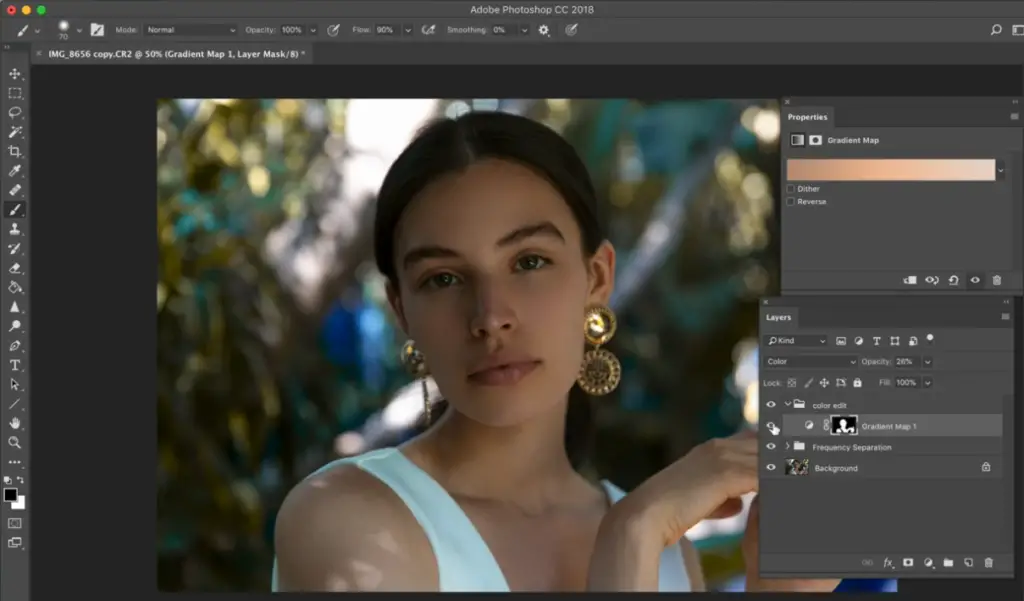Photoshop use is legal and has existed for a long time giving photographers a competitive edge in photo editing. Photoshopping is a great way to enhance your photos as a photographer.
However, you infringe copyright regulation if you copy or alter images without the original owner’s permission. If you want to offer post-production editing, you must seek correct legal permission from the copyright holder.
Copyright and Fair Use
If you use someone’s picture without the photographer’s consent, you infringe copyright law. You can modify a copyrighted image to some extent (within fair use limitations), but it does not mean you have created an original. Otherwise, if you change the picture without the original creator’s permission (outside of fair use regulations), you commit copyright infringement.
Editing images is legal and most professional photographs go through post-production editing using photo editors like, Photoshop, Lightroom, GIMP etc.
It is legal to use Photoshop for retouching and improving image tone, contrast, lighting, and emphasis. However, you must understand the level at which retouching is valuable and acceptable. There are Photoshop laws enacted in some countries to address the changing of the silhouette of a model.
For instance, In France, Photoshop is being regulated by legislation that requires a retouching disclosure. The law requires disclosure of a model when publishing an altered image of a modified to narrow or wider. Violations of such regulation are punishable by a fine of 37,500 Euros. S
Similarly, Israel has enacted a Photoshop law that demands disclosure of the image manipulation of models and specifying the body mass index (BMI) for the modeling professionals. As a Photoshop user, especially if you work with models, you need to check out the laws in your country that govern the use so that you are not caught on the wrong side of the law.
Is cracked/pirated Photoshop safe?
Using cracked or pirated software is illegal, and you can be blocked by the software vendor temporarily or permanently, among other consequences. Both cracking and possession of cracked software is a federal crime in the USA (Intellectual property theft) and can land you a 5 year sentence. You could also get legal action from the software company if they find out. There is no guarantee for your computer data safety if you are downloading cracked software.
While not all are dangerous, it is entirely up to you to determine the program’s safety, and if you aren’t sure, do not use them. In some cases, you can download a program containing a virus that could harm your computer. It will help if you run in a sandbox until you determine it is safe.
Is it illegal to Photoshop passport, id, and birth certificate?
It is a criminal offense to photoshop legal documents such as Passport, ID, Birth Certificate, VISA, and other government-issued documents and using them to gain any benefits.
According to the US State Department, if you are found guilty of tampering with or falsifying a passport or visa, you could face a 10-year-sentence.
If you are convicted of willfully damaging or destroying your passport in Ireland, you face a five-year prison sentence or fine of up to 10,000 Euros or both.
What happens if you update cracked Adobe Photoshop?
Once you update a cracked version of Photoshop online, Adobe will notice you are using a cracked version, provide a warning, and ask you to get a subscription to legally licensed Photoshop.
The Cheapest Way To Get Photoshop
Is it Illegal to Photoshop someone’s face?
There would be no problem if the person asked you to Photoshop the face for their use. But if you modify the front to show ridicule in someone and publish, they could potentially sue for defamation. You can also Photoshop the face of a celebrity’s picture as long as you are not using it to promote a product or service.

Otherwise, it is illegal to Photoshop someone’s face and any other editing form without their permission. You always need permission to use photos for commercial purposes, whether the person is famous or not.
In summary
Photoshop and photoshopping are legal if it is done in the right way. Photoshopping removes flaws in raw images, which is crucial for photographers. Photoshop regulations seek to control the exaggeration of models’ body sizes that give a false impression of who they are.
You require the copyright owner’s permission to photoshop third-party images. Otherwise, Photoshop is an essential program for enhancing photos, and it is ethical if you use it for the right purpose.
Thanks for the read! Find out can you save as a vector in photoshop?
